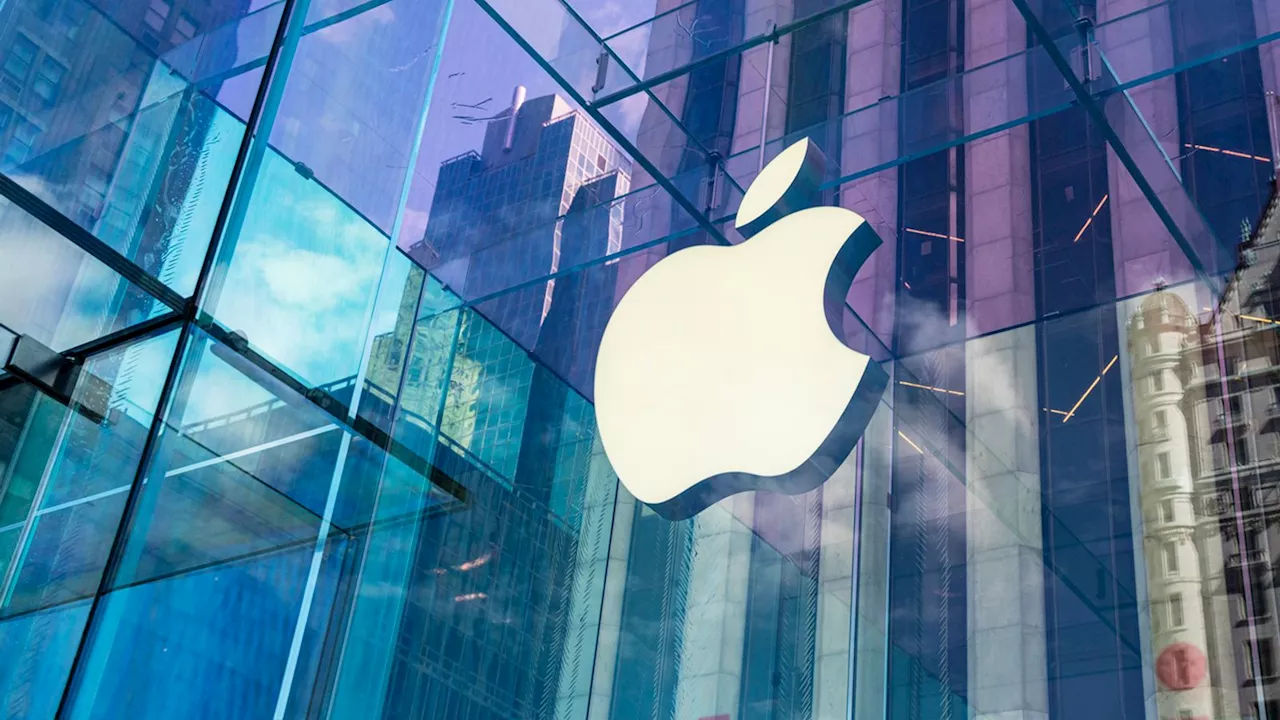The UK government has reportedly ordered Apple to provide access to encrypted data stored by its users worldwide. This move has sparked controversy, with concerns raised about privacy violations and the potential for misuse by malicious actors.
Apple has reportedly been ordered by the UK government to allow it access to encrypted data stored by the company's users worldwide in its cloud service. At the moment, only the Apple account holder can access such data - not even the US technology giant can see it. Apple , which makes iPhones, iPads and iMacs, has been issued with a Technical Capability Notice (TCN), the Washington Post and BBC are reporting.
This order, which does not get published, is said to require a blanket ability for the government to view people's encrypted data - both in the UK and abroad. The Home Office will not confirm or deny the existence of the order. Apple has been approached for comment. Getting technology companies to break encryption has long been a contentious issue in the UK government. Ministers have argued they want to use it for purposes like protecting children, identifying criminals and keeping the public safe. However, opponents argue that such an order is a breach of privacy, they highlight the risk to whistleblowers and journalists, and point out that any tool the government has to break into people's information has a danger of being hijacked by bad actors. There are also concerns that, if implemented, the UK's order could lead nations like China to force Western companies to break their users' privacy. The debate stretches as far back as 2017, when then home secretary Amber Rudd stated that 'I don't need to understand how encryption works' to want it broken. Much of the debate around encryption has been around 'end-to-end' encryption, which means that messages and data sent between two devices can only be read by the person they are sent to - and are scrambled if anyone else tries to intercept or access them. \On Apple products, users have the option to use 'Advanced Data Protection', which means certain data can only be decrypted by the user. Apple promises that even a cloud data breach would not make the information readable. Users are also told that Apple cannot see the data due to the end-to-end encryption used to share the information. The order from the UK government was made under the UK Investigatory Powers Act 2016, according to The Washington Post. The act says the orders can be applied to companies outside the UK. There are avenues for Apple to appeal against the TCN, but this process would not be made public. Read more:Encryption 'put children at risk'A 'disaster' for counter-terrorism The Labour government has been outspoken in its desire to target social media and technology companies while in power. This includes recently trumpeting its plans to be the first country in the world to create a new AI sexual abuse offence to punish those generating and facilitating the creation of AI child sexual abuse images. And Home Secretary Yvette Cooper has criticised social media companies for not being fast enough to take down videos previously viewed by Southport killer Axel Rudakubana. Last year, Apple provided written evidence to MPs on its many oppositions to the Investigatory Powers Act and TCNs. It noted that the law gives the UK government the power to 'act as the world's regulator' of security technology - something which could put it at odds with authorities like the EU and the United States. Order would 'undermine fundamentally human rights' The American company also said that an order to force decryption would 'undermine fundamentally human rights' and potentially put the UK at odds with the European Court of Human Rights. 'There is no reason why the should have the authority to decide for citizens of the world whether they can avail themselves of the proven security benefits that flow from end-to-end encryption,' Apple said. It added: 'Moreover, any attempt by the to use its extraterritorial powers to compel technology companies to weaken encryption technology will only strengthen the hands of malicious actors who seek to steal and exploit personal data for nefarious purposes.' \A spokesperson for privacy and civil liberty campaign group Big Brother Watch said: 'We urge the UK government to immediately rescind this draconian order and cease attempts to employ mass surveillance in lieu of the targeted powers already at their disposal.' A Home Office spokesperson said: 'We do not comment on operational matters, including for example confirming or denying the existence of any such notices.
APPLE ENCRYPTION UK GOVERNMENT PRIVACY SECURITY TECHNOLOGY ACT INVESTIGATORY POWERS ACT
United Kingdom Latest News, United Kingdom Headlines
Similar News:You can also read news stories similar to this one that we have collected from other news sources.
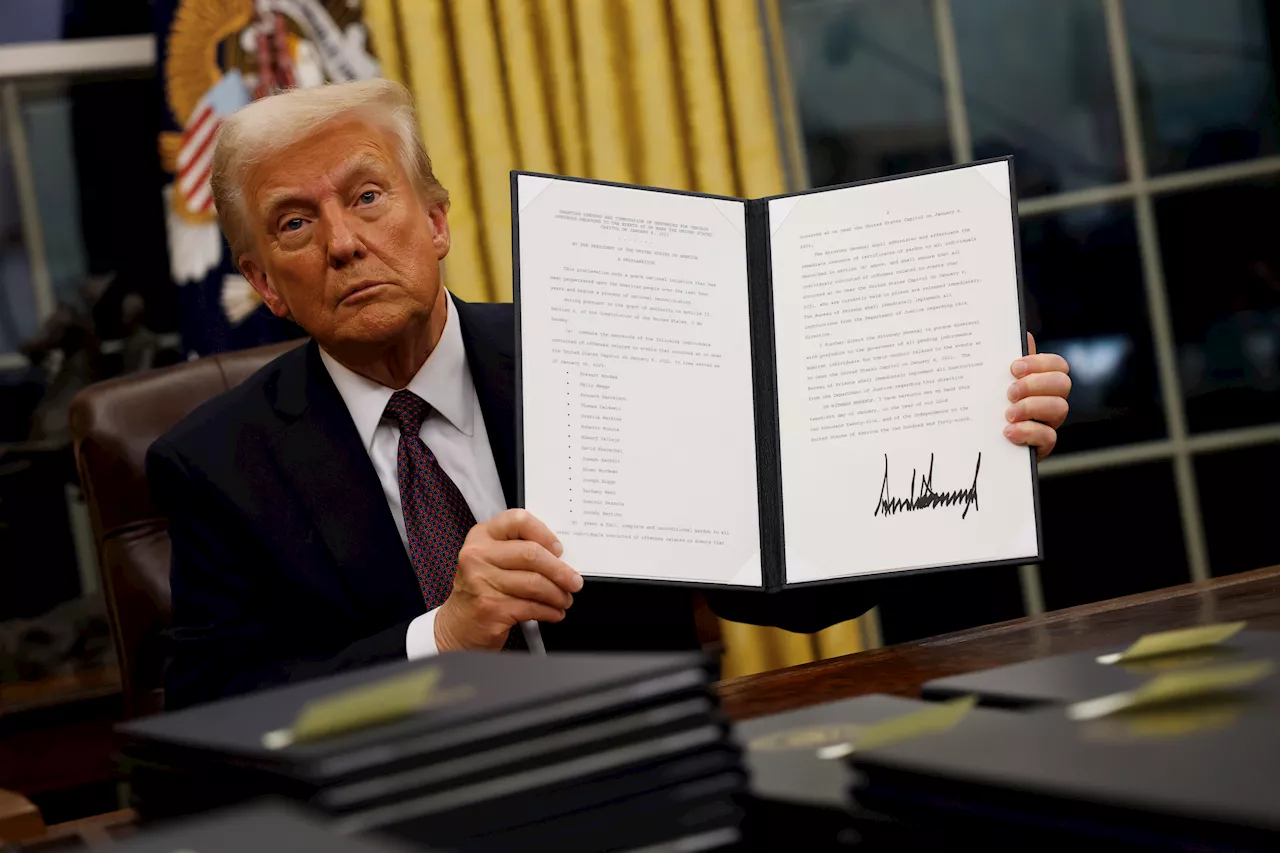 Trump Administration Orders Elimination of DEI Offices in GovernmentThe White House has issued a directive to federal agencies to terminate all diversity, equity, and inclusion (DEI) offices and positions within 60 days. This move accelerates previous plans for dismissing workers involved in DEI initiatives and comes after the administration expressed concerns about 'social engineering' through racial and gender policies. While the exact number of employees affected remains unclear, the directive could result in significant layoffs within government agencies.
Trump Administration Orders Elimination of DEI Offices in GovernmentThe White House has issued a directive to federal agencies to terminate all diversity, equity, and inclusion (DEI) offices and positions within 60 days. This move accelerates previous plans for dismissing workers involved in DEI initiatives and comes after the administration expressed concerns about 'social engineering' through racial and gender policies. While the exact number of employees affected remains unclear, the directive could result in significant layoffs within government agencies.
Read more »
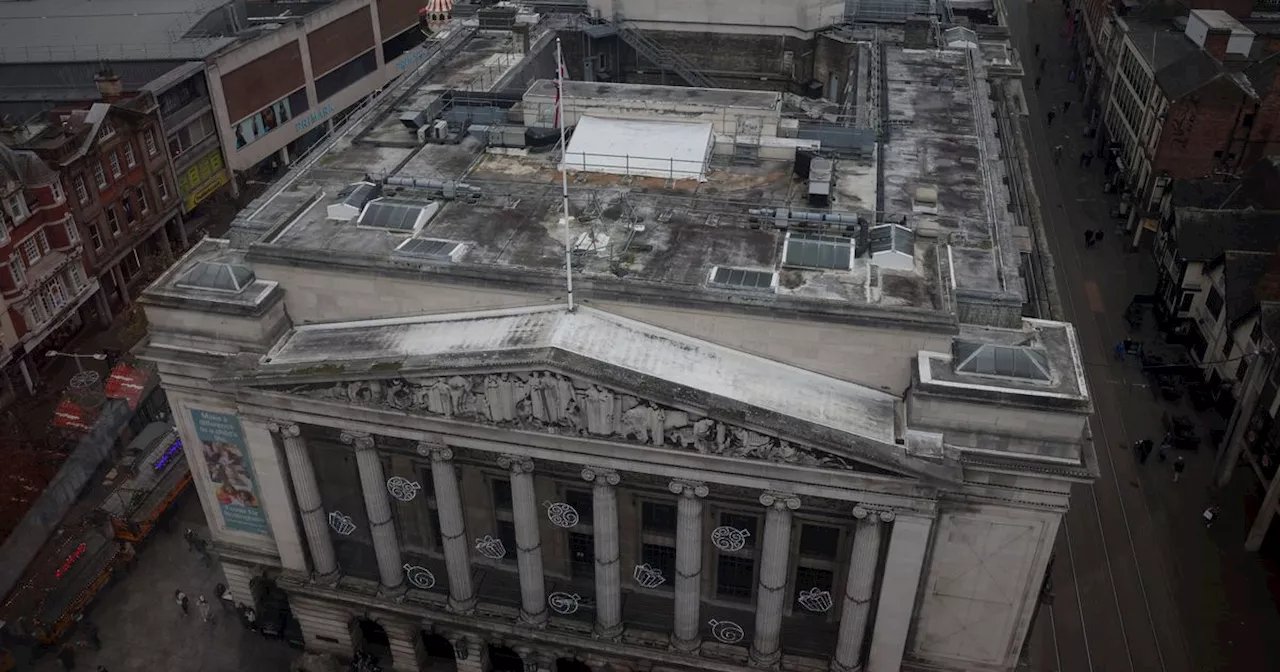 Nottinghamshire Councils Grapple with Uncertain Future Amidst Government's Two-Tier Local Government ReformNottinghamshire's council leaders face a challenging situation as the government pushes for a single-tier system of local government. The proposed reforms would see the seven district and borough councils absorbed into unitary councils, with Nottingham City Council likely expanding its territory. This has sparked concerns among leaders in neighboring councils, particularly regarding financial stability and local control.
Nottinghamshire Councils Grapple with Uncertain Future Amidst Government's Two-Tier Local Government ReformNottinghamshire's council leaders face a challenging situation as the government pushes for a single-tier system of local government. The proposed reforms would see the seven district and borough councils absorbed into unitary councils, with Nottingham City Council likely expanding its territory. This has sparked concerns among leaders in neighboring councils, particularly regarding financial stability and local control.
Read more »
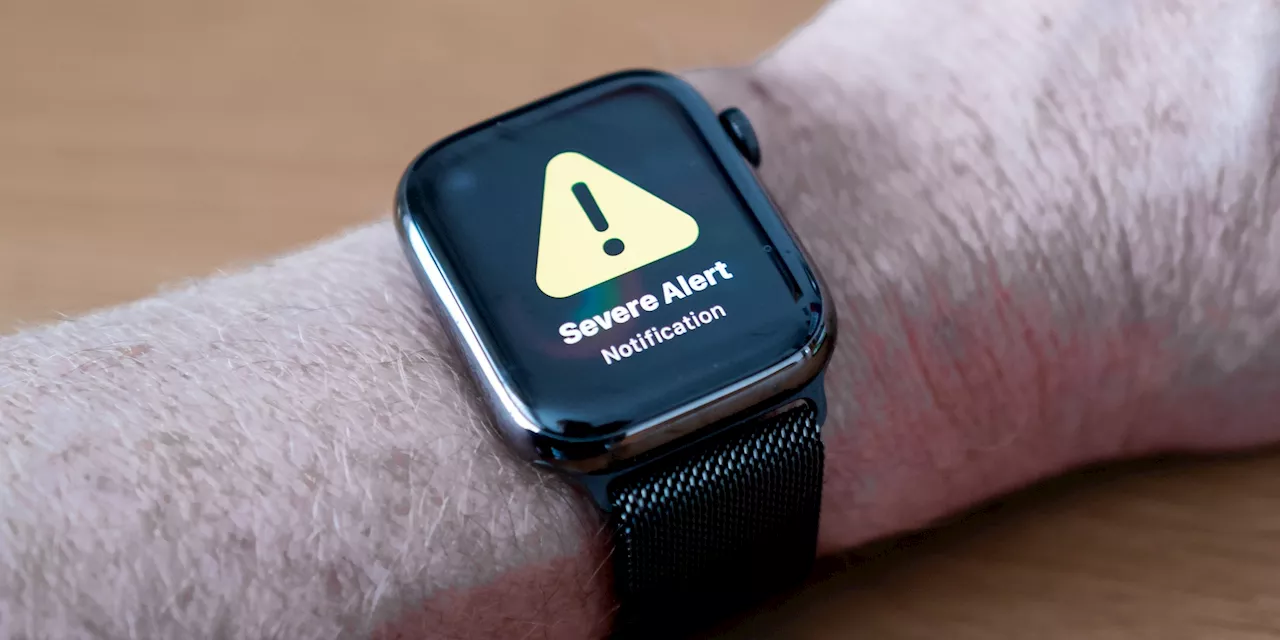 Apple Sued Over 'Forever Chemicals' in Apple Watch BandsA class-action lawsuit accuses Apple of selling watch bands containing harmful PFAS chemicals.
Apple Sued Over 'Forever Chemicals' in Apple Watch BandsA class-action lawsuit accuses Apple of selling watch bands containing harmful PFAS chemicals.
Read more »
 Apple Addresses Apple Watch Band PFAS ConcernsApple released a statement assuring users that Apple Watch bands are safe despite concerns about the presence of PFAS, often referred to as 'forever chemicals,' in some watch bands. The company acknowledges the lawsuit filed against them at the California Northern District Court and states they are working to phase out PFAS usage in their products.
Apple Addresses Apple Watch Band PFAS ConcernsApple released a statement assuring users that Apple Watch bands are safe despite concerns about the presence of PFAS, often referred to as 'forever chemicals,' in some watch bands. The company acknowledges the lawsuit filed against them at the California Northern District Court and states they are working to phase out PFAS usage in their products.
Read more »
 Millions Face Local Election Delays Amidst Government's Local Government ReorganizationThe English government's plans to restructure local government through mergers have led to the postponement of local elections in nine areas. Communities Secretary Angela Rayner granted permission for these areas to delay elections until 2026 to avoid councillors serving extremely short terms. This decision has sparked criticism from opposition parties who accuse the government of rushing the process and denying voters their democratic right.
Millions Face Local Election Delays Amidst Government's Local Government ReorganizationThe English government's plans to restructure local government through mergers have led to the postponement of local elections in nine areas. Communities Secretary Angela Rayner granted permission for these areas to delay elections until 2026 to avoid councillors serving extremely short terms. This decision has sparked criticism from opposition parties who accuse the government of rushing the process and denying voters their democratic right.
Read more »
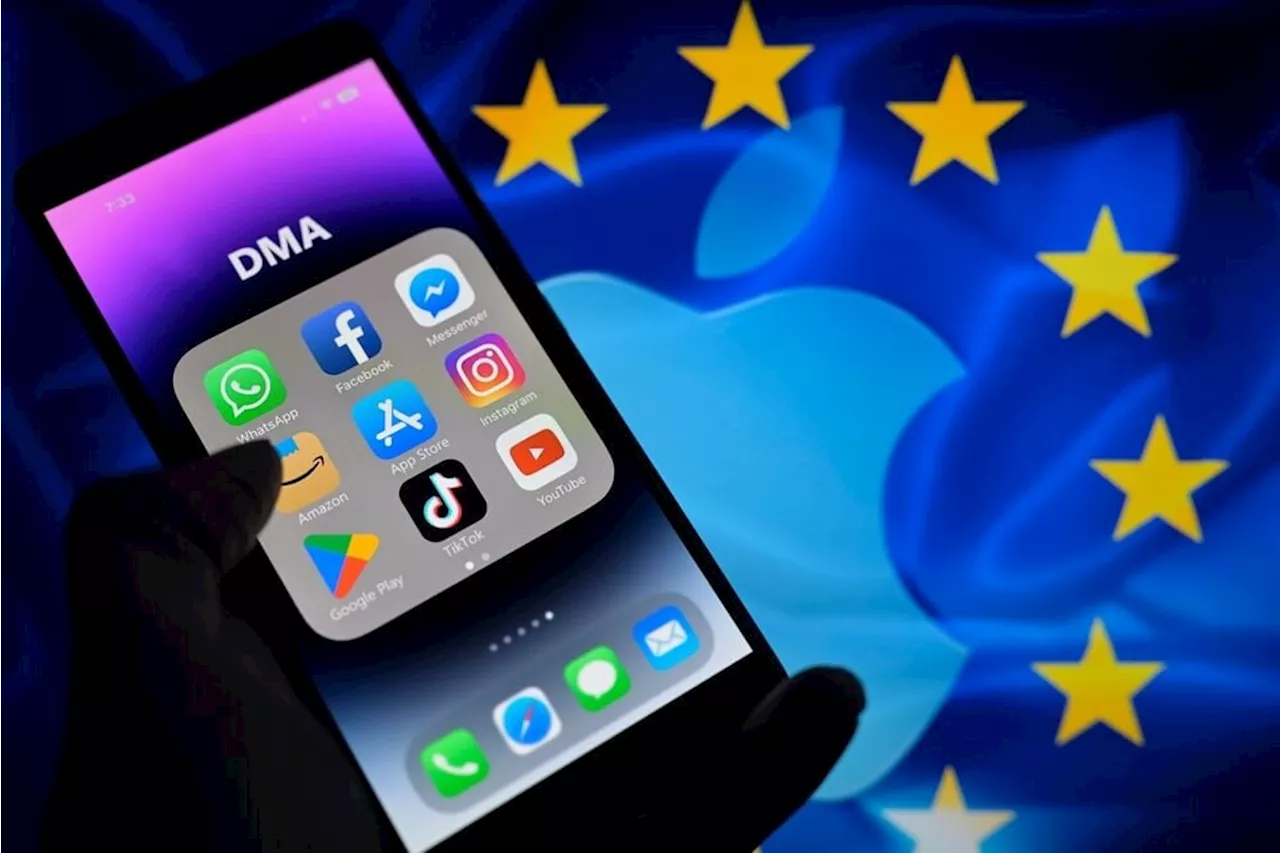 Digital Rights Groups Accuse Apple of Failing to Comply with EU's DMA Interoperability RulesDigital rights advocacy organizations are alleging that Apple is not fulfilling its interoperability obligations under the EU's Digital Markets Act (DMA). They argue that Apple's practices related to iOS connectivity features like AirDrop and its handling of developer requests for interoperability are deficient and hinder competition. The groups are calling on the European Commission to take action against Apple, including prohibiting the use of non-disclosure agreements (NDAs) at Apple's discretion, implementing a standardized interoperability request form, and mandating improvements to Apple's bug reporting system.
Digital Rights Groups Accuse Apple of Failing to Comply with EU's DMA Interoperability RulesDigital rights advocacy organizations are alleging that Apple is not fulfilling its interoperability obligations under the EU's Digital Markets Act (DMA). They argue that Apple's practices related to iOS connectivity features like AirDrop and its handling of developer requests for interoperability are deficient and hinder competition. The groups are calling on the European Commission to take action against Apple, including prohibiting the use of non-disclosure agreements (NDAs) at Apple's discretion, implementing a standardized interoperability request form, and mandating improvements to Apple's bug reporting system.
Read more »
